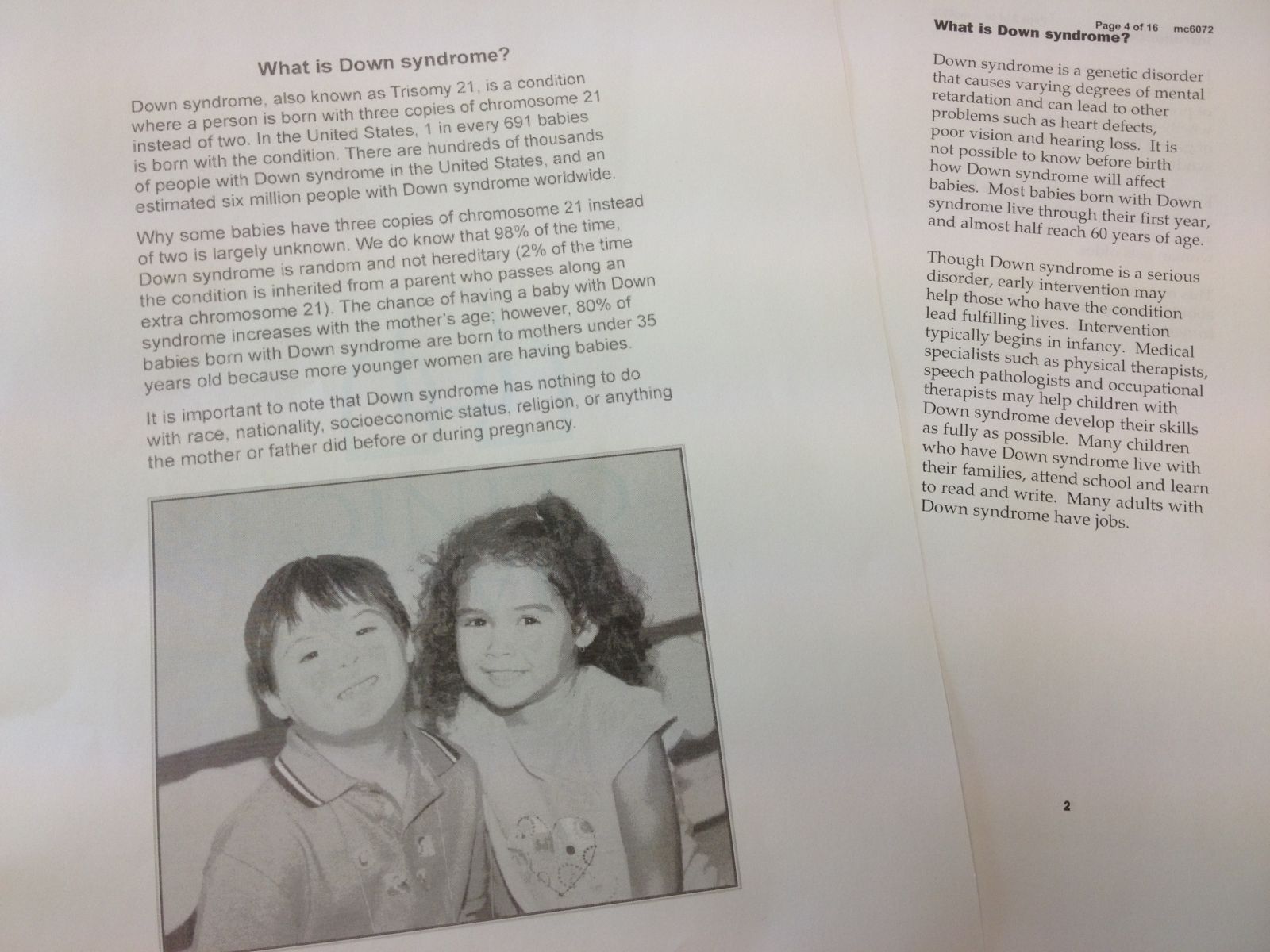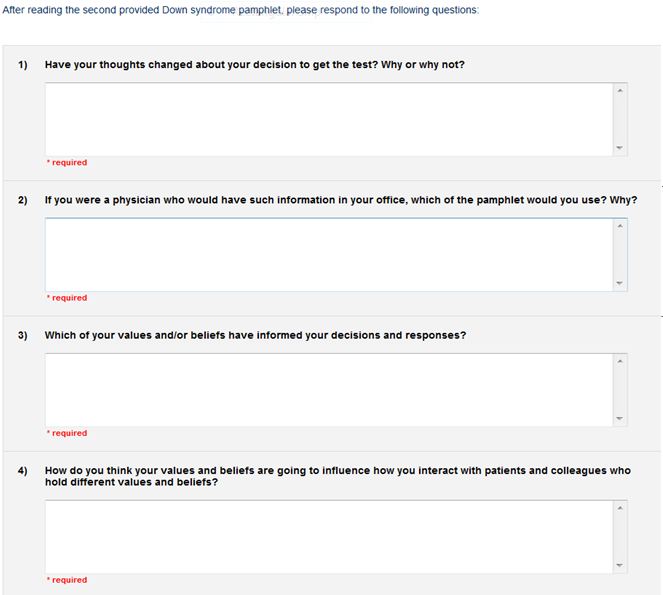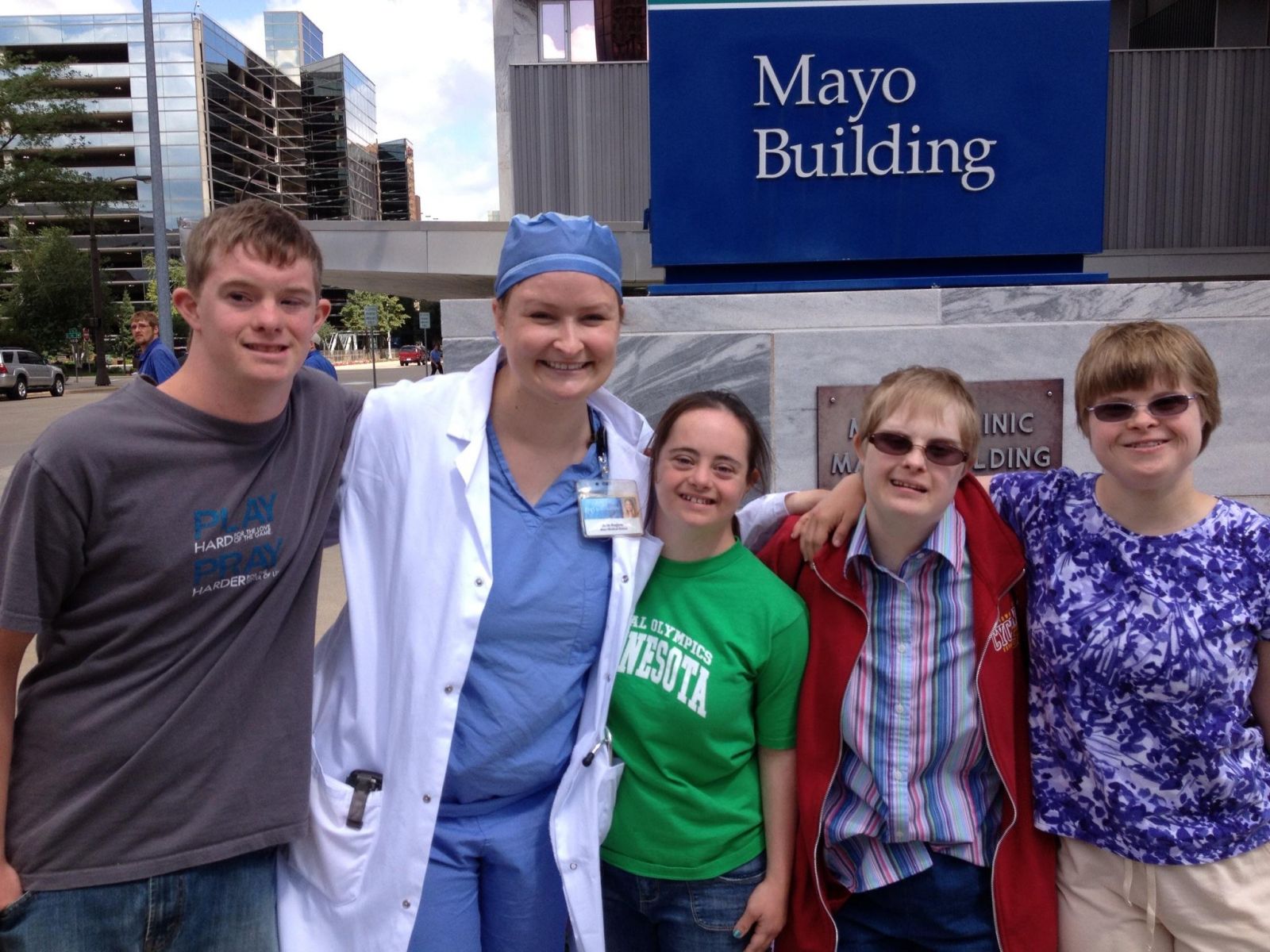
|
Authors | Institution |
|
Rachel Havyer M.D. Julie Rogers Ph.D. Dominic Caruso C. Christopher Hook M.D. |
Mayo Clinic |
 |
|
||||||
| DEVELOPING A CURRICULUM IN DISABILITY TO HELP PRE-CLINICAL MEDICALSTUDENTS EXPLORE WORLDVIEWS |
Medical education traditionally explores the scientific rather than the social aspects of disability, emphasizing a bias toward normative or curative intent in medicine and further alienating the disability community and potentially contributing to health care disparities. Attitudes of medical students toward disability have previously been explored and are generally negative but can be improved with education related to disability1, 2. Yet, training on caring for individuals with intellectual disabilities is lacking in medical schools3. A unique pre-clinical curriculum was developed with a focus on the exploration of worldviews, with the purpose of increasing awareness of social aspects of disability and empathy for individuals with disabilities.
Seven hours of curricular time were devoted to exploration of the human experience of disability through discussion and interaction with community members during the first year of medical school. Following a lecture on Down syndrome in the genetics course, a broader perspective on Down syndrome was provided through discussion including a Down syndrome community advocate and panel of people with Down syndrome sharing their life perspectives. During a subsequent first year course which includes topics on bioethics and health disparities, further discussion on disability ensued. Initial didactic teaching focussed on the history and definition of disability, health care disparities associated with disability, and the medical vs. social model of disability, followed by a panel of people with disabilities discussing their life and medical experiences. Subsequently, the concept of disparate worldviews on disability was highlighted through contrasting an educational brochure on prenatal genetic testing for Down syndrome produced by a medical institution with that of a disability organization. To allow open expression of opinion regarding the brochures and differing worldviews, guided electronic reflections were completed. Responses of individual class members were anonymously collated and compiled with a class discussion the following day regarding the breadth of worldviews that exist and how the medical community can professionally navigate differences that may come up in their interactions with patients and colleagues.


Forty-seven percent (22 of 47) of entering medical students had no personal experience with individuals with disabilities. Students found it helpful to hear the personal perspectives of people with disabilities and unanimously agreed that learning about disability in medical school is important. Following the review of other students’ electronic responses, first year medical students were able to openly discuss how to respectfully and professionally handle opinions that varied from their own.
Pre-clinical medical students commonly lack personal experience with disability. Exposure to the human-experience of disability helps promote empathy and self-exploration of worldview.
Professional development involves self-exploration and empathy. Curriculum to help students understand disability and differing worldviews in society and among colleagues can be easily integrated into curricula and is well-received by students.
We would like to extend our thanks to the community members who came in to share their lives and experiences in order to enhance the education of our medical students.

1. Byron M, Cockshott Z, Brownett H, Ramkalawan T. What does “disability” mean for medical students? An exploration of the words medical students associate with the term “disability”. Med Educ. 2005;39(2): 176-83.
2. Martin HL, Rowell MM, Reid SM, Marks MK, Reddihough DS. Cerebral palsy: what do medical students know and believe? J Paediatr Child Health. 2005;41(1-2):43-7.
3. Special Olympics. Changing attitudes Changing the world: The health and health care of people with intellectual disabilities. 2005. Accessed August 13, 2013. http://www.specialolympics.org/uploadedFiles/LandingPage/WhatWeDo/Research_Studies_Desciption_Pages/policy_paper_Health.pdf
4. Global Down Syndrome Foundation & National Down Syndrome Congress. Down syndrome prenatal testing pamphlet, English. 2012. Accessed August 12, 2013. http://www.downsyndrometest.org/down-syndrome-prenatal-testing-pamphlet-english/
5. Mayo Clinic. Patient Education: First trimester screening for Down Syndrome. 2008. mc6072rev1008.
 Send Email
Send Email
